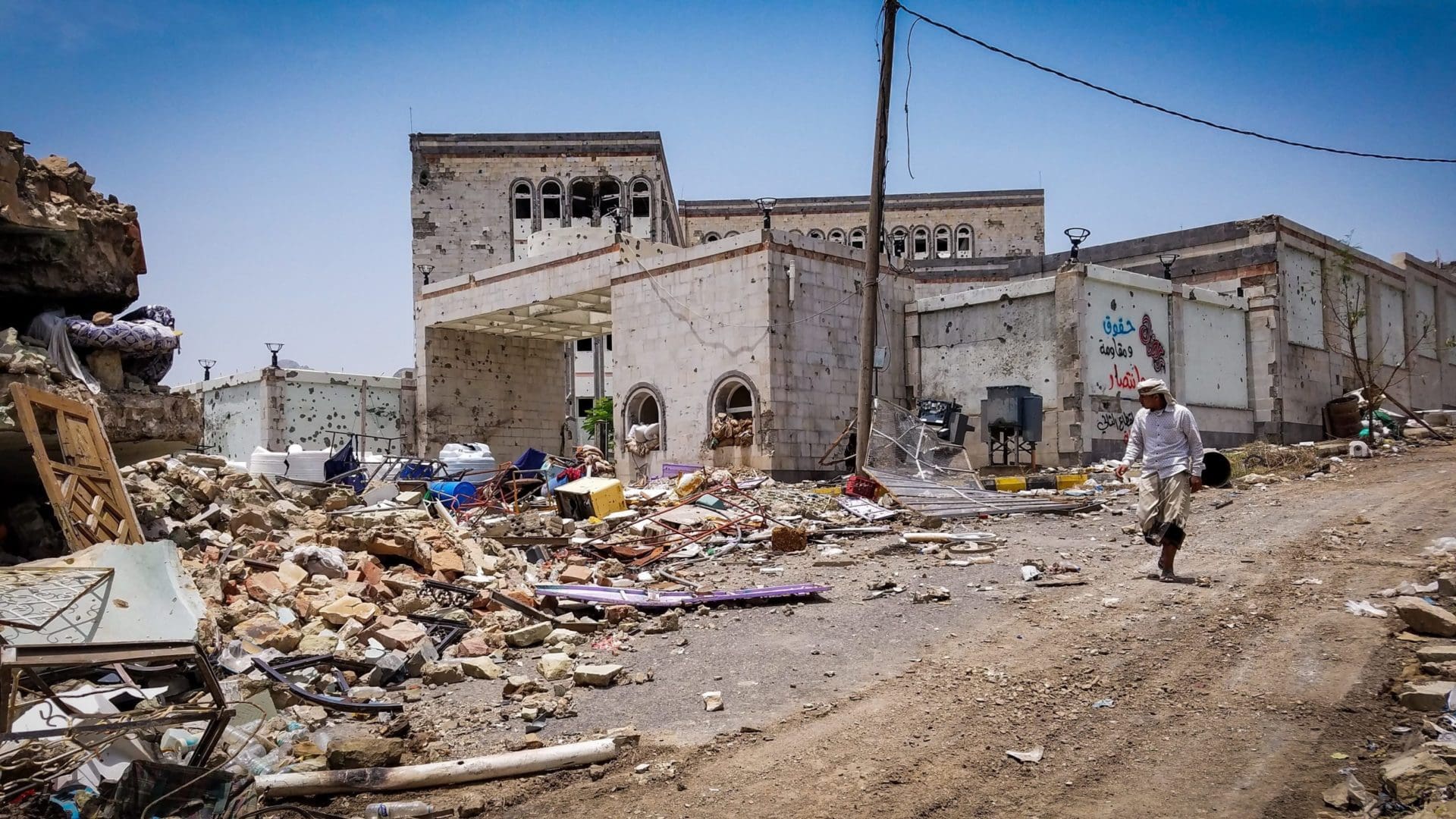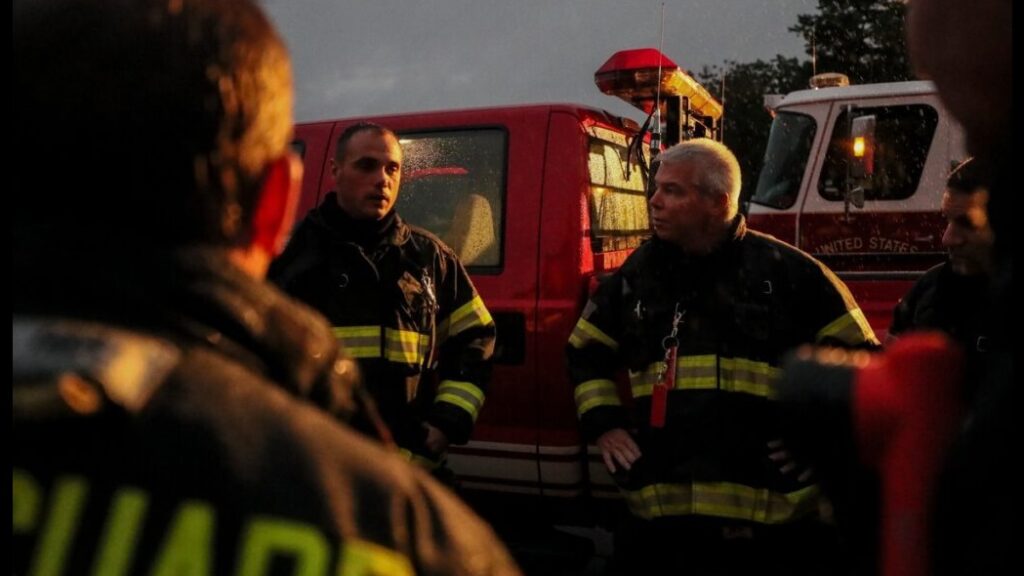It has been three weeks since Russian Federation troops invaded Ukraine, and this act of aggression has drawn international condemnation, specifically from the US-NATO states. Some have gone so far as to call for[i] the International Criminal Court to pursue President Vladimir Putin with an active investigation[ii] of possible war crimes.
Yet while the world is rightly concerned about the largest military attack in Europe since World War II that has killed thousands and displaced millions of Ukrainians, the free world has been relatively silent on what has been declared as the world’s largest humanitarian crisis: the seven-year-war in Yemen, albeit it has led to the genocide against the Yemeni people by the US-Saudi alliance.
From its start, the war in Yemen has been entrenched in complex dynamics relating to US-Saudi relations and domestic developments in the Kingdom. On 26 March 2015, the Saudi government decided to lead a military campaign in response to a request[iii] by the Yemeni president, Abdrabbuh Mansur Hadi, who was ousted in a coup organised by the Ansar Allah movement (the Iranian-backed Houthis). Since then, in what has become a proxy war against the Islamic Republic of Iran, the US has provided intelligence, military advice, and logistical support to the Saudi Arabia-led military intervention in Yemen.
The US has provided intelligence, military advice, and logistical support to the Saudi Arabia-led military intervention in Yemen
The Saudi coalition—composed of the United Arab Emirates and the Hashemite Kingdom of Jordan—has deliberately targeted the Yemeni civilian infrastructure, homes, farms, factories, schools, buses, petrol stations, government buildings, water treatment facilities, and anything else imaginable. Washington has justified its continued support for the Saudi coalition arguing that its military assistance is necessary to restore the UN-recognised government of Yemen and preserve Saudi territorial integrity from incursion by the Houthis.
Thus far,
- there have been nearly 400,000 civilians killed[iv]—an astonishing 70 per cent of them children;
- more than ten million Yemenis are on the brink of starvation;
- two million Yemeni children suffer from severe acute malnutrition, as a child dies every ten minutes from preventable causes;
- as of 2018, there have been more than 1.2 million cases of cholera that has claimed 2,500 lives, to say nothing of the COVID-19 cases[v] that have incremented the death toll;
- over 4 million Yemenis have been forced[vi] from their homes by violence, and live internally displaced inside the country—an estimated[vii] 73 per cent of the over 4 million people displaced in Yemen are women and children, while approximately 30 per cent of displaced households are now led by women;
- one woman dies every two hours during childbirth, an almost entirely preventable tragedy—more than a million pregnant and breastfeeding women are already acutely malnourished, a number that could double with the food insecurity Yemen is facing.
In 2019, both chambers of the US Congress passed a bill pressing then-President Donald Trump to end his military and tactical support to the Saudis. It marked the first time that Congress invoked the War Powers Resolution of 1973[viii] to direct the president to withdraw troops from an undeclared war. Trump avoided enforcing the legislation by declaring a state of emergency in order to finalise a deal that provided $8.1 billion in armaments[ix] to the Saudi coalition.
On 4 February 2021, President Joe Biden announced that his administration would end support for ‘offensive’ military operations led by Saudi Arabia in Yemen and name a special envoy to help bring this conflict to an end. Such decisions, however, do not constitute a departure from the policies adopted by the two predecessor administrations, especially after he approved[x] last November, with overwhelming Senate approval, a $650 million arms sale to the Saudis. In addition, American defence contractors, for example, are allowed to continue to service Saudi planes that are carpet bombing[xi]innocent people.
While a substantial number of Yemenis have not been killed by direct violence, most have died by deteriorating public health conditions directly related to the Saudi-led coalition’s bombing attacks and naval blockade—the latter has prevented sufficient food, medical supplies, fuel, clean water and other essentials from reaching desperate people in need. This would constitute genocide under the articles determined by the 1948 Convention on the Prevention and Punishment of the Crime of Genocide—this does not exonerate the war crimes of rape, torture, and arbitrary killings by the Houthis. Yemen’s rich cultural heritage and public health facilities have also been deliberately destroyed.
US Complicity in Genocide?
Genocide, a term coined by Raphael Lemkin[xii] in 1944, is an internationally recognised crime where acts are committed ‘with the intent to destroy, in whole or in part, a national, ethnical, racial or religious group, as such:
- killing members of the group;
- causing serious bodily or mental harm to members of the group;
- deliberately inflicting on the group conditions of life calculated to bring about its physical destruction in whole or in part;…’
A state can share responsibility for the wrongful acts of another state
According[xiii] to Professor Jeff Bachman, Director of the Ethics, Peace, and Human Rights Program at School of International Service at American University, in the Responsibility of States for Internationally Wrongful Acts the International Law Commission established that a state can share responsibility for the wrongful acts of another state when it would be a wrongful act if perpetrated directly by the other state and if the other state is aware of the circumstances of the wrongful act being committed. Subsequently, two questions must be answered:
- If the US was committing the same acts as the Saudi-led coalition, would they be wrongful?
- Is the US aware of the circumstances of the wrongful acts being committed by the Saudi-led coalition?
The fact that the destruction of Yemen by the US-Saudi coalition has been ongoing for seven years, the US government, regardless of the mainstream media’s lack of attention, is quite aware of the synchronised attacks that have torn Yemen apart.
Bachman further states that in the 2007 case of Bosnia and Herzegovina v. Serbia and Montenegro, the International Court of Justice put forth that shared intent is only relevant when considering whether a state conspired with another to commit genocide. For complicity, however, a state only needs to be aware that the aid it is providing to another state facilitates the crime being committed. Hence, if the US and its allies shared the Saudi-led coalition’s genocidal intent, the assistance the American government is providing would make it a conspirator in the commission of genocide.
It is not the intent of the author to shift attention away from the war in Ukraine to the one in Yemen, especially as those of us who live here in Europe may be directly affected with Russian troops seeking to take over a sovereign country. Nevertheless, it does raise the question as to why the majority of the international community has criminalised Vladimir Putin, but has for the past seven years refrained from publicly challenging or criticising the US government’s implicit role in the Yemeni genocide.
[i] Zachary B. Wolf, ‘Everything you need to know about war crimes and how Putin could be prosecuted,’ Cnn.com (17 March 2022), War crimes: How Putin could be tried in the International Criminal Court – CNNPolitics, accessed 17 March 2022.
[ii] Josh Campbell, ‘International Criminal Court Begins war crime investigation in Ukraine,’ Cnn.com (2 March 2022), (19) International Criminal Court begins war crime investigation in Ukraine (cnn.com), accessed 19 March 2022.
[iii] Al Riyadh, ‘Joint Gulf statement to stand by the Yemeni people to restore their security and stability,’ Alriyadh.com (6 May 2015), al , riyadh | saudi arabia, uae, bahrain, qatar and kuwait decide to respond to president hadi’s request to protect yemen from houthi militia aggression (alriyadh.com), accessed 17 March 2022.
[iv] Matt Agorist, ‘The U.S. Is Facilitating A Genocide of Mostly Children in Yemen & Mockingbird Media Is Focused on Trucker Donations,’TheWashingtonStandard.com (19 February 2022), The US Is Facilitating A Genocide Of Mostly Children In Yemen & Mockingbird Media Is Focused On Trucker Donations – The Washington Standard, accessed 18 March 2022.
[v] Shadi Abusneida, ‘For Yemenis on the brink, aid funding gap spells disaster,’ Unhcr.org, UNHCR – For Yemenis on the brink, aid funding gap spells disaster (2 June 2020), accessed 18 March 2022.
[vi] Carys Anderson, ‘Angelina Jolie Arrives in Yemen to Support Civil War Refugees,’ Yahoo.com (10 March 2022), Angelina Jolie Arrives in Yemen to Support Civil War Refugees (yahoo.com), accessed 17 March 2022.
[vii] UNFPA, ‘Yemen: The world’s largest humanitarian crisis,’ Unfpa.org (1 November 2021), Yemen: The world’s largest humanitarian crisis | United Nations Population Fund (unfpa.org), accessed 17 March 2022.
[viii]H.J.Res.542 – War Powers Resolution – 93rd Congress (1973-1974), Congress.gov, H.J.Res.542 – 93rd Congress (1973-1974): War Powers Resolution | Congress.gov | Library of Congress (1973), accessed 17 March 2022.
[ix] Marcia Robiou, ‘What you Need to Know About Trump’s $8 Billion Saudi Arms Deal,’ Pbs.org (16 July 2019), What You Need to Know About Trump’s $8 Billion Saudi Arms Deal | Yemen’s COVID Cover-Up | FRONTLINE | PBS | Official Site, accessed 18 March 2022.
[x] Al Jazeera, ‘Biden administration approves weapon sale to Saudi Arabia,’ Aljazeera.com (4 November 2021), Biden administration approves $650m weapon sale to Saudi Arabia | Weapons News | Al Jazeera, accessed 17 March 2022.
[xi] Bernie Sanders and Ro Khanna, ‘Saudi warplanes carpet-bomb Yemen with US help. This must end,’ TheGuardian.com (3 Dec. 2021), https://www.theguardian.com/commentisfree/2021/dec/03/saudi-warplanes-carpet-bomb-yemen-with-us-help-this-must-end, accessed 18 March 2022.
[xii] Facing History, ‘Raphael Lemkin and the Genocide Convention,’ Facinghistory.org, Raphael Lemkin and the Genocide Convention | Facing History and Ourselves, accessed 18 March 2022.
[xiii] Kay Summers, ‘The US’s Role in the Hidden Genocide of Yemen,’ American.edu (28 January 2019), The US’s Role in the Hidden Genocide in Yemen | American University, Washington, D.C., accessed 18 March 2022.








